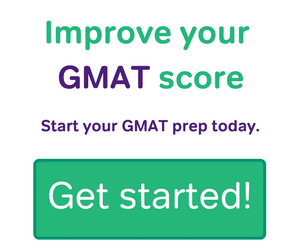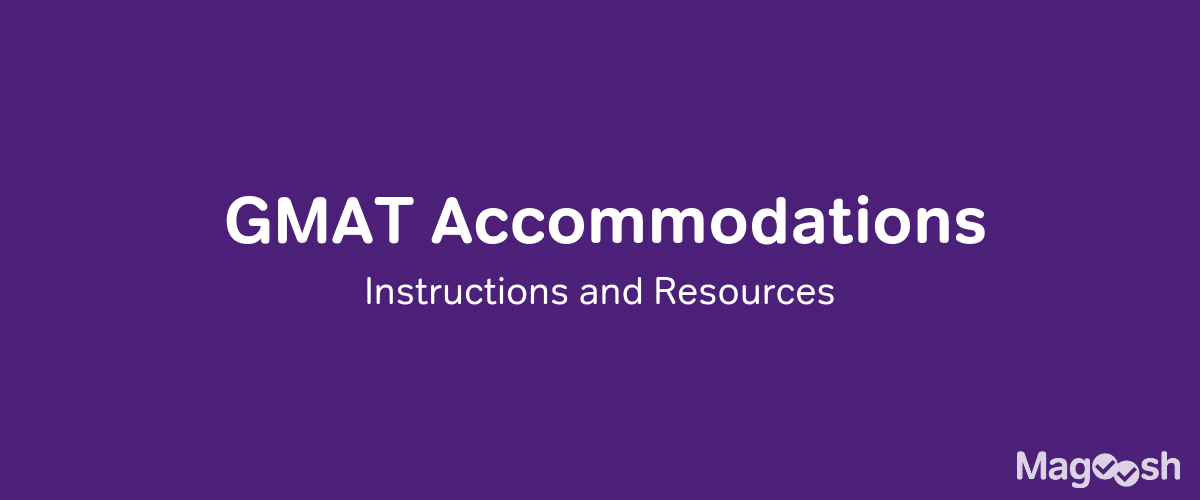Over the course of a lifetime, a committed meditation practice or daily yoga practice would be the way to develop your mindfulness and breathing technique. What if you would like to move in that direction as much as possible between now and your GMAT, but your GMAT is only a month or two away? Starting a meditation practice would help a little, but here are some steps you can take now to accelerate your progress in this direction.
Understand, these steps are not easy, and may even appear radical. If you wanted to design a culture that would maximize human distractedness, uncenteredness, and inner dissatisfaction despite external comfort, you could hardly do better than our current electronic media-driven culture. What I advocate here flies in the face of everything this culture values, so in that sense, it is “radical”, but at the same time it is deeply consistent with what has sometimes been called the “perennial philosophy“, so in that sense, it’s also traditional in the deepest sense.
If you want a fast-track to decreasing your stress and anxiety, increasing your focus, calming your mind, and enhancing your memory and your intuition, here are the steps I recommend.
1) (review from the previous article) Deep breathing throughout the day: slow full breaths during virtually all activities, especially in the quiet “in between” moments of the day (on the elevator, in traffic, before a meeting, etc.) This stimulates the Parasympathetic Nervous System (PNS), the “Relaxation Response.”
2) Cut down drastically on excitement. Excitement and stress feel different, but they both exercise the same pathways in the Sympathetic Nervous System (SNS). A little excitement is fine, but if you chase a lot of excitement, you are asking for a lot of stress. To practice one is to practice the other. This is precisely why a diminutive Zen Master was famous for saying: “Adventure—heh. Excitement—heh. A Jedi craves these things not.”
3) Lowering SNS stimulation means: Exceedingly little TV. Very few action movies. Very few video games. No adrenaline-inducing thrills. In fact, spend the majority of your down time without electronic stimulation of any sort, without anything electronic in front of your eyes, not “plugged in.”
4) Eight hours of sleep every single night. Nothing enables the encoding of new information into long-term memory more effectively than REM sleep, and in an eight-hour period of sleep, your longest REM period is in the last 1.5 hour sleep cycle of the night.
5) Exercise daily. Make sure a thorough stretch of the whole body is included in your workout (that’s particularly easy if your daily workout happens to be yoga or a martial art form.)
6) Use caffeine sparingly at most. Absolutely no energy drinks. Avoid “high fructose corn syrup.” Be abstemiously sparing with alcohol. No recreational drugs at all.
7) Eat healthy: more fresh fruits and veggies, fewer processed foods. Eat more organic, if that’s possible. Drink plain water—not any liquid, but plain water—at least eight big glasses of water a day as a minimum; 3-4 liters per day would be better. Use a sauna or sweat lodge, if you have access to one (drink even more water if you do this). If you are really ambitious about cleaning toxins from your body, then do a colon cleanse (drink even more water if you do this).
8) Insofar as you have the possibility, spend quiet time in Nature, daily if possible. That could be a walk in the woods or walk on the beach if those are close to where you live. It can be looking up at the Moon and night sky in a relatively quiet place. For folks in intensely urban areas, with essentially no easy access to pristine Nature, it even can be as minimal as sitting and staring at potted flowers, or feeling the wind or rain on your skin. —In the STAR WARS movies, the “Force” was described as flowing from Nature, from living things, and all the planets that played a significant role in defeating the Evil Empire were forest or jungle planets. The human mind spontaneously enters a calmer and more spacious emotional place when we spend some time walking around in Nature. Whatever else the “Force” is, it is about stimulating relaxed mindful awareness of the PNS.
9) For mindfulness practice, start the habit of noticing one new thing in each familiar environment of your life: your office, your own living space, familiar stores, friends’ houses, etc. Each time you are there, force yourself to notice something you have never noticed before: it may be an object, or color, or scent, or sound. It may be just a perspective or point of view. It may be a quality of light & shadow at a particular moment of the day. It may be intuitive, a vibe about the place. Force yourself to notice something new every day, or every time you are there. At first, it may feel like there are only a few possibilities, and you will run out in a week or so, but the more you practice this, the more you realize: even the most familiar place offers a veritable infinitude of new discoveries. Relatedly find out about Mindful Test Taking.
10) Practice curiosity and wonder. This is not so much inquisitiveness, needing to know the answer to things. It’s more about opening up questions that may not have any clear answer. Be curious about what other people’s experience might be like, all the “minor characters” in the film of your life. Be curious about natural things: plants, birds, patterns of water flow, etc. Be curious about histories and stories of people and things. Every day, challenging yourself to entertain genuine curiosity about something which, previously, it never occurred to you to find interesting in the least.
11) If you feel ambitious about practicing mindfulness, read one of the respected authors: Jon Kabat-Zinn, Mark Epstein, Jack Kornfield, and Joseph Goldstein.
12) If you feel particularly ambitious about becoming a Jedi Master, then start a daily meditation practice.
This is a difficult set of recommendations, I am aware. If you can implement even half of them, you will be making excellent progress. Even that would be a challenge. The recipe for mediocrity is, quite simply: do what everyone else does. If you want an extraordinary outcome, you need to take extraordinary steps. These are extraordinary steps, steps that have been proven, in both traditional and scientific contexts, to support greater attention and focus and successful performance under pressure.
If you can implement these between now and the GMAT, you will find lower anxiety and greater clarity available for the test itself. If you can continue with these practices after the GMAT, you will find the focus and centeredness will give you an edge in business school and in the business world. And, much more importantly, you’ll be happier.
Don’t forget to check out my previous posts explaining the value of breathing, mindfulness, and taking a step back from one’s stories.






Leave a Reply